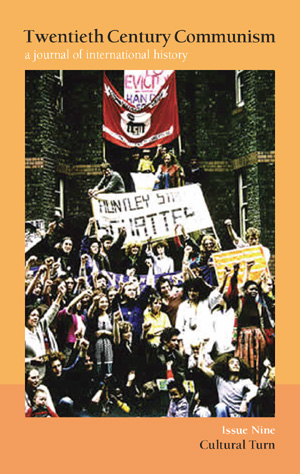
Gorizian heretics of 1956: Eurocommunism starts here?
Twentieth Century Communism - Print ISSN 1758-6437 - Online ISSN 2978-1329
Volume 2015 Number 9
Gorizian heretics of 1956: Eurocommunism starts here?
Fiona Haig
Abstract
1956 proved to be not only a landmark for the international communist movement but a turning point in the Cold War. By the autumn of that year, the bi-polar world order that had been steadily forming since the second world war, had consolidated into diametrically opposed camps whose conflicting interests would dictate the course of history for the next three decades. Stalin’s death three years earlier had unleashed a desire for change across Eastern Europe. However, it was the ‘revolutionary’ content of the Twentieth Congress of the Communist Party of the Soviet Union (CPSU) in February that triggered the unforeseen train of events that culminated in the Hungarian Revolution in October and November, coinciding dramatically with the Suez Crisis. And it was this last episode that was to mark a decisive shift in the balance of powers from Europe to the superpowers.
To cite this article
Fiona Haig (2015) Gorizian heretics of 1956: Eurocommunism starts here?, Twentieth Century Communism, 2015(9)
